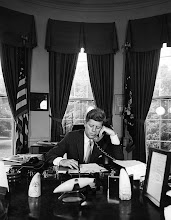Initially, I was torn between reading Rocket Boys and The Jungle, but eventually I decided upon the latter. When my seventh grade American history class was studying the progressive era, my teacher read a selection of rather disturbing passages from Upton Sinclair's muckraking masterpiece. My morbid curiosity piqued, I began to read it, but abandoned it about a quarter of the way through in favor of a lighter, less depressing (and less disgusting!) book; this summer, however, I was determined to finish it.
This time I did manage to read the entire novel, although I still found it depressing to read the series of tragedies that befell Jurgis Rudkus and his family of Lithuanian immigrants in the deathtrap of Chicago's stockyards. Even more disheartening was the impact that Chicago's corruption had on the morals of Jurgis and his relatives. Toward the end of the book, I became rather irritated by the lengthy socialist rants. Interestingly enough, these appeals for socialism and Sinclair's protests against oppression and "wage slavery" had significantly less impact on the American public and Theodore Roosevelt than the dozen or so pages early on describing the horrors of the meatpacking industry. Apparently, it is easier to reach a man's stomach than his heart!
While it would be untrue for me to say that I enjoyed The Jungle, I can honestly say that I appreciated it because of the major reforms it sparked. Thanks to this book, I do not need to consider becoming a vegetarian.
Welcome APUSH'ers
Hello AP US History Students of the Summer 2014e,
Many of you are aware that something happened to the blog and posting was disabled. I only just was able to correct the problems with Google this weekend. I have a How to to help those who haven't posted anything, or just need to submit your final comment. Please do so as soon as you can. Deadlines will be extended to Tuesday, August 19th at 10 pm for all the Summer Blog deadlines.
You can access the Help Sheet by Clicking Here.
You need to post comments three different times for your Summer Reading.
Every time you post, you must include your first and last name-- every time you post (get the idea that your name is important?). Without a name, grades cannot be assigned. Keep in mind that we do not know you by name other than from the legal roster, please put any given names not used in parenthesis).
It is IMPORTANT that you use the username and password included in your Summer Reading packet. (username: mcapush2 password: historyrules)
Many of you are aware that something happened to the blog and posting was disabled. I only just was able to correct the problems with Google this weekend. I have a How to to help those who haven't posted anything, or just need to submit your final comment. Please do so as soon as you can. Deadlines will be extended to Tuesday, August 19th at 10 pm for all the Summer Blog deadlines.
You can access the Help Sheet by Clicking Here.
You need to post comments three different times for your Summer Reading.
Every time you post, you must include your first and last name-- every time you post (get the idea that your name is important?). Without a name, grades cannot be assigned. Keep in mind that we do not know you by name other than from the legal roster, please put any given names not used in parenthesis).
It is IMPORTANT that you use the username and password included in your Summer Reading packet. (username: mcapush2 password: historyrules)
Subscribe to:
Post Comments (Atom)




No comments:
Post a Comment